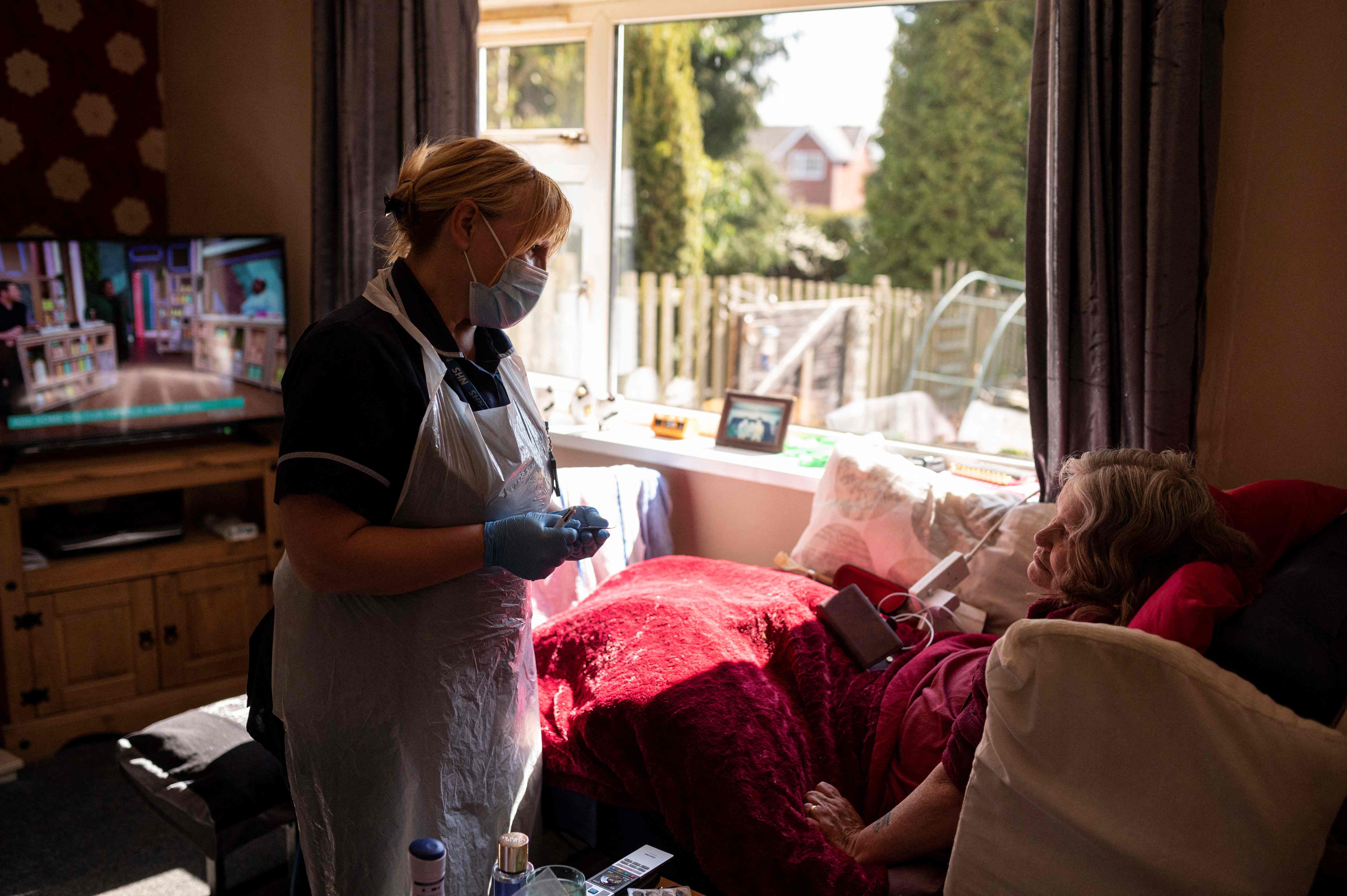Pandemic had ‘devastating and lasting’ impact on clinically vulnerable patients, finds report
Covid affected physical and mental health for many of more than four million people advised to shield, writes Tom Batchelor


The pandemic has had a “devastating and lasting impact” on the more than four million people who were identified as being clinically extremely vulnerable and asked to shield as the virus tore through communities across the UK, a report has found.
Researchers said that clinically extremely vulnerable people experienced a higher rate of deaths compared to the general population – and that the mental and physical health implications are still being felt today.
The higher risk of complications from Covid was compounded by a reorganisation of NHS services in the early stages of the pandemic which led to significant unmet health needs and worsening mental health among this group, research by the Health Foundation’s Networked Data Lab found.
For cancer, the researchers noted a significant drop in planned treatment referrals in 2019/20. Over the same period, there was a large rise in emergency admissions for these cancers, suggesting a shift from planned to emergency care which is associated with worse cancer outcomes.
Kathryn Marszalek, senior analytical manager at the health charity, said those advised to shield from the virus “have seen worse rates of infection and death from Covid-19 and, having greater health care needs, have been particularly impacted by changes to NHS services during the pandemic”.
She said the “negative impact goes beyond the harm to their physical health”, as those who were advised to isolate at home have been unable to take part in activities such as exercising or seeing friends and family.
“Our research reveals the toll this has taken on the mental wellbeing of many clinically extremely vulnerable people who were already more likely to suffer from mental health conditions than the general population,” Ms Marszalek said.
The charity is calling on the NHS to prioritise these patients to ensure that their mental and physical health conditions do not deteriorate further.
Researchers told The Independent one approach would be to prioritise treatment for the list of conditions that are most prevalent among this group of patients, including organ transplant, cancers and respiratory conditions.
However, they said this would have to be handled sensitively to prevent it impacting significantly on quality of care and patient outcomes for any one condition.
Health Foundation’s analysis showed that at the peak of the first wave at the beginning of April 2020, the rate of deaths among the clinically vulnerable population was over two and half times that in the general population (1 in 2,500 compared to 1 in 7,000).
By the end of August 2020, the clinically extremely vulnerable population accounted for around one in five (19 per cent) of all deaths, while only making up just 4 per cent of the total population in England.
Clinically vulnerable patients were impacted further when the NHS adapted its services at the start of the pandemic so as to care for Covid patients.
This led to planned admissions for vulnerable people dropped by half (51 per cent) while outpatient appointments decreased by a similar proportion (48 per cent).
Emergency admissions for clinically extremely vulnerable people also decreased by 32 per cent (comparing April 2019 with April 2020) and A&E attendances fell by 42 per cent.
The fall in admissions is likely to have stored up problems for those who had more complex health needs to begin with, the charity said.
The research also highlights “significant issues” in the use of a centralised algorithm to compile the shielding patient list.
The study’s authors said that while this did ensure a level of consistency between regions, there was significant variation between England, Scotland and Wales in terms of the numbers of people who were added to the list.
Researchers said this raised questions about how effectively clinically extremely vulnerable people were identified and whether everyone had access to the support they required, as those who were not identified would have missed out on food parcels, priority delivery slots for online grocery shopping and a medicine delivery service.
“Action is now needed by those planning the recovery at local and national levels to address the unmet need for NHS care and worsening mental health,” Ms Marszalek said.
“Failure to prioritise the needs of the clinically extremely vulnerable population will inevitably result in further deterioration in their health, putting additional pressure on the NHS which is already struggling to deal with a massive backlog of care.
“Alongside this immediate support, further work is needed to understand the longer-term consequences for the clinically extremely vulnerable population, both in terms of long-term health care needs but also in terms of their ability to resume work and other daily activities.
“But this will be complicated by the current lack of high-quality data across the health and care systems.
“Further investment is urgently needed to ensure that in the event of a future health emergency, we can quickly, accurately and consistently identify individuals to enable rapid planning and delivery of relevant support.”
A Department of Health and Social Care spokesperson said: “We recognise how difficult the pandemic has been for so many, particularly those considered clinically extremely vulnerable.
“On 15 September we announced an end to the shielding programme based on our enhanced understanding of what makes individuals more or less vulnerable, the success of the Covid-19 vaccination programme, and the emergence of proven treatments.
“A range of support services continue to be available and we’ve invested an additional £500m this year to help people whose mental health has been particularly impacted by the pandemic.
“Our booster programme will ensure those most vulnerable to Covid-19 have protection extended ahead of winter and against new variants.”






Join our commenting forum
Join thought-provoking conversations, follow other Independent readers and see their replies
2Comments